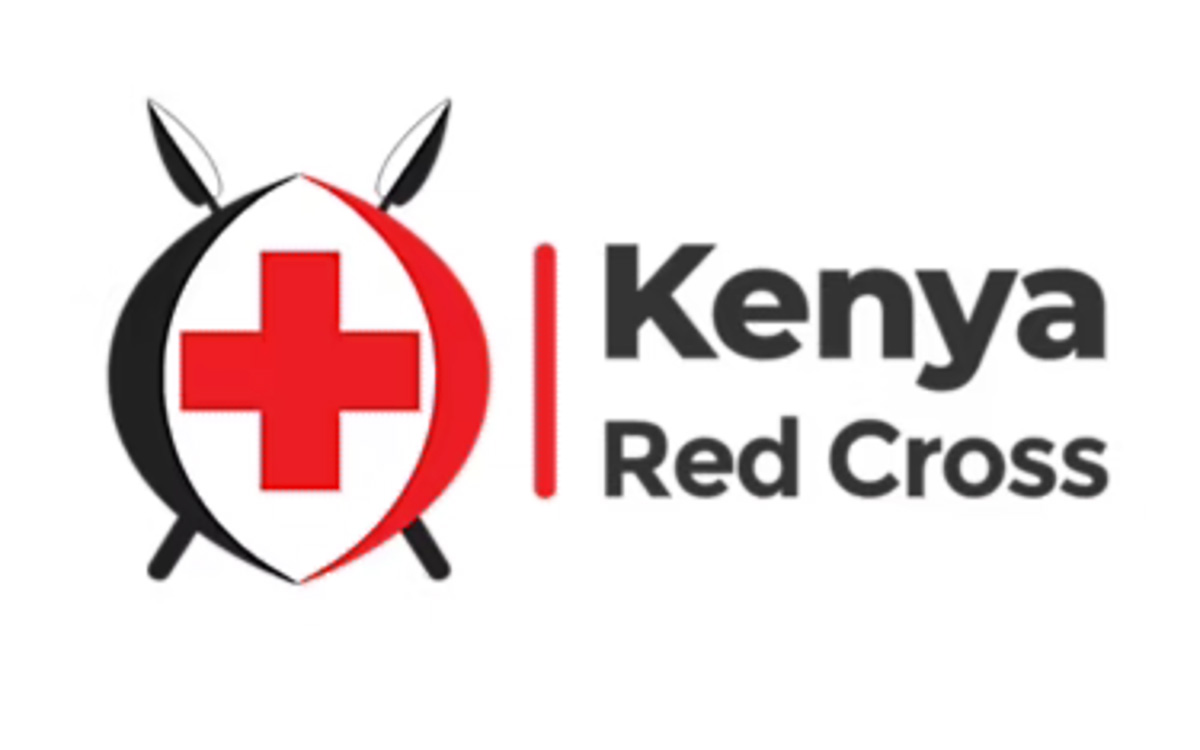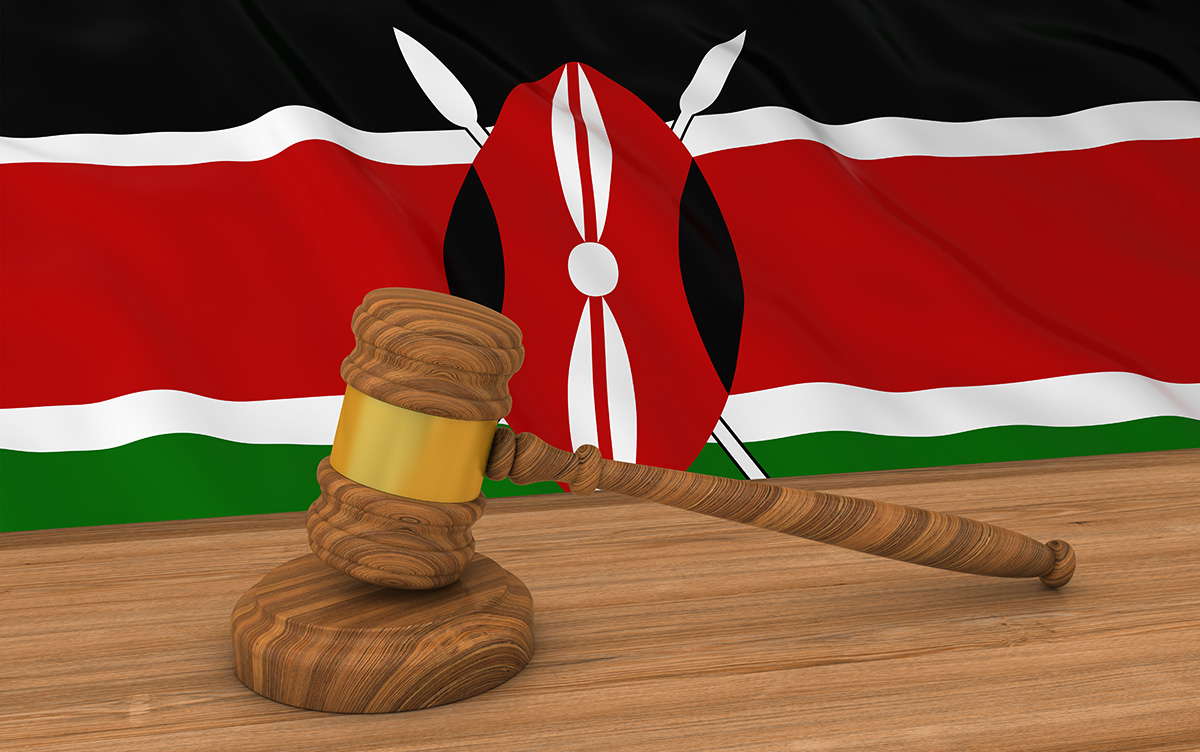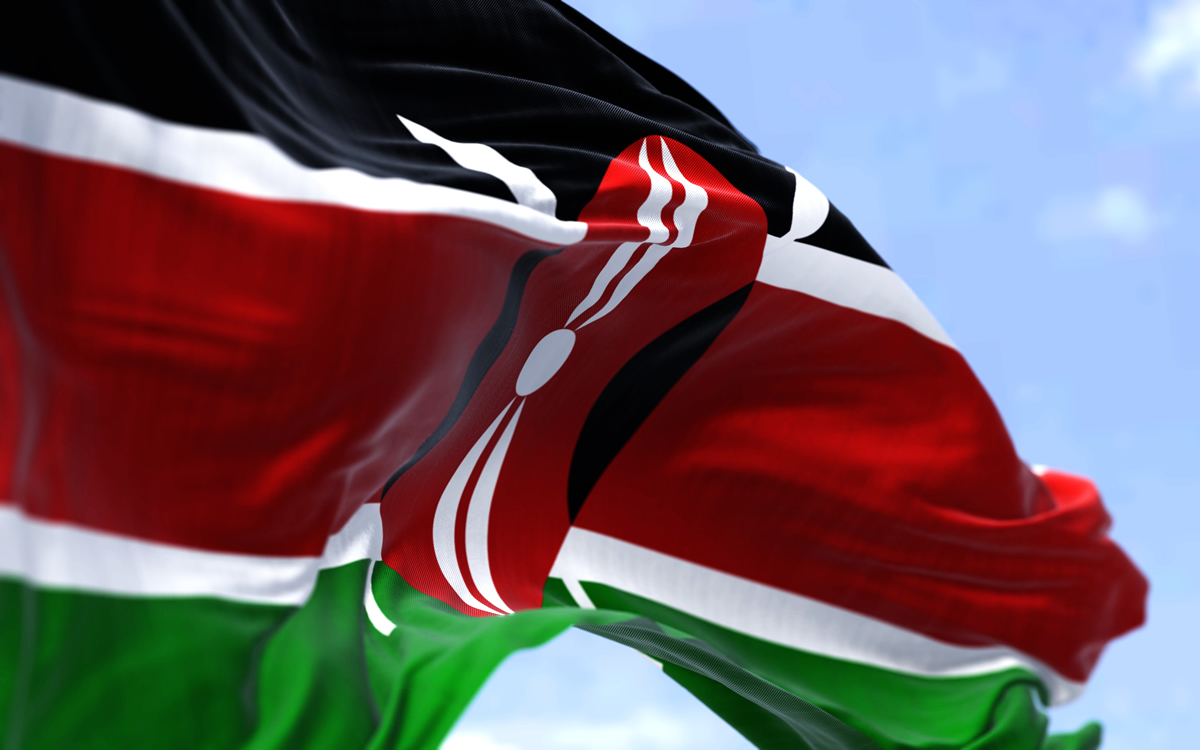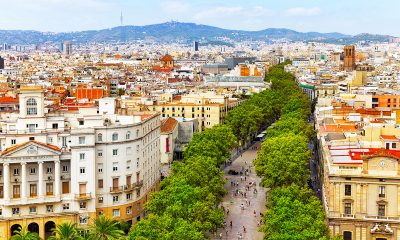Kenya
Kenya Red Cross-owned hotel to host anti-LGBTQ conference
Speakers from US, European countries to participate in May 12-17 gathering

Plans to host a family values meeting next month in a 5-star hotel in Nairobi that the Kenya Red Cross Society co-owns have sparked an uproar among local queer rights groups.
The groups accuse the Kenya Red Cross of violating its Global Fund commitment of protecting key populations by allowing its Boma Hotel to host an “anti-gender and anti-LGBTQ” conference.
Influential guest speakers from the U.S., the Netherlands, Spain, and Poland will preside over the Pan-African Conference on Family Values that will take place from May 12-17. The Kenyan advocacy groups say these speakers’ organizations are globally recognized for undermining LGBTQ rights.
“As the principal recipient of Global Fund in Kenya, hosting this event contradicts (the) Red Cross’s humanitarian mission and threatens the safety and dignity of people living with HIV, women and LGBTQ+ individuals, the communities that Kenya Red Cross Society has long committed to supporting,” the queer rights groups state.
The LGBTQ groups that have criticized the Kenya Red Cross include Upinde Advocates for Inclusion, the Initiative for Equality and Non-Discrimination, and Gay and Lesbian Coalition of Kenya. They have also launched an online signature collection drive to compel the Kenya Red Cross to withdraw the hotel from hosting the “Promoting and Protecting Family Values in Challenging Times”-themed conference.
“The event’s so-called ‘family values’ narrative is a smokescreen for policies that push hateful legislation and promote death, discrimination, femicide, gender-based violence, and restrict fundamental freedoms across Africa,” the groups said.
The pro-life Western organizations that are scheduled to participate in the conference include Family Watch International from the U.S., CitizenGo from Spain, the Ordo Luris Institute from Poland, Christian Council International from the Netherlands, the New York-based Center for Family and Human Rights (C-FAM), and the Foundation for American Cultural Heritage. Their local counterparts include the National Council of Churches of Kenya, the Kenya Christian Professionals Forum, the Africa Christian Professionals Forum, and the Evangelical Alliance of Kenya.
C-FAM President Austin Ruse; Family Research Council Vice President for Policy and Government Affairs Travis Wever; Global Life Campaign Executive Director Thomas W. Jacobson; and the Rev. Ricky Chelette, executive director of Living Hope Ministries, Inc., and president of the Institute of Biblical Sexuality are among the U.S. guest speakers. Other participants include Henk Jan van Schthorst, president of Christian Council International’s board of directors, Ordo Luris Institute President Jerzy Kwasniewskie and his colleague, Rafal Dorosinski, director of the group’s Legal Analysis Center.
The Kenyan groups through their online petition — “Tell Red Cross Kenya Not to Give Hate a Platform” — has so far raised more than 1,000 of the 10,000 signatures they hope to collect. The petition is addressed to Red Cross Kenya Secretary-General Ahmed Idris and his predecessor, Abbas Gullet, who is the hotel’s director.
“We call on you to immediately cancel this booking and publicly reaffirm Red Cross’ commitment to human rights, health and inclusivity,” the petition reads. “Failure to act will raise concerns about whether (the) Red Cross can still be trusted by the community to lead with empathy and fight for their rights.”
The Kenya Red Cross, however, maintains the Boma Hotel is a separate entity, even though public records indicate it is one of the facility’s shareholders.
The LGBTQ groups note the hotel should be a safe space that promotes inclusion, not platforms that enable “harmful gathering” for hate and exclusion by “dangerous groups.”
“By providing a venue for this event, Red Cross directly enables a platform for hate and discrimination — a stark contradiction to the values of inclusivity, humanity, and nondiscrimination that the organization claims to uphold,” they said.
The organizations further warn that proceeding to host the conference threatens the relationship between the Red Cross and the marginalized communities who have long depended on the humanitarian organization for support and protection. CitizenGo has nonetheless criticized the LGBTQ groups, which it describes as “radical activist groups” for “trying to silence a pro-family event” and asked the Kenya Red Cross and the Boma Hotel not to back down.
“These groups are calling the event ‘hateful’ because it affirms the natural family — marriage between a man and a woman — and the dignity of every human life, including the unborn,” Ann Kioko, the group’s campaign director for Africa and the U.N., said.
Through an online counter signature collection drive, Kioko holds CitizenGo and other groups won’t be intimidated, silenced or apologize to the queer rights groups for defending “our families, our faith and our future”.
“The real goal of these foreign-funded activist groups is to impose LGBTQ and gender ideologies on Africa — ideologies that have led elsewhere to the confusion of children, the breakdown of family structures and the rise of sexual libertinism that results in abortion, STIs and lifelong emotional and psychological trauma,” Kioko stated.
Kenya
Queer Kenyans, Ugandans celebrate Pride month
Pan-African Conference on Family Values took place in Nairobi in May

As queer people around the world celebrate Pride month, their Kenyan and Ugandan counterparts are also marking it with a strong message of defiance and resistance.
Their agitation for “dignity, safety, and liberation” in homophobic environments follows last month’s second Pan-African Conference on Family Values in Nairobi, whose delegates were concerned about the push to normalize so-called LGBTQ practices on the continent and resolved to resist.
The Initiative for Equality and Non Discrimination, a Kenyan LGBTQ rights organization, for instance cites Pride’s founding spirit of protest to resist the attempt to “erase, silence and oppress” queer people.
“In a world that tries to diminish our existence, choosing joy becomes a radical act. Queer joy is not just a celebration, it is resistance. It is healing. It is a bold declaration; we are here, we are whole, and we deserve to thrive,” INEND states.
It affirms that queer people have space for rage, resistance, softness, and joy as they honor the roots of Pride packed with a variety of activities for the group throughout the month.
“We demand inclusion, we bask for visibility and we dance through the fire. This, too, is revolution,” INEND says.
During the Pan-African Conference on Family Values meeting, which delegates from national governments, anti-LGBTQ lobby groups, academic and religious institutions, and international partners attended, Kenyan National Assembly Speaker Moses Wetang’ula affirmed the country’s position on marriage between a man and a woman as the constitution states. Wetang’ula advocates for laws that protect the “traditional family” and cultural values against what he described as Western imports.
“I urge our legislators that they should shield the good provisions of our constitution on family from ideological redefinitions of marriage seeking to recognize outlawed same-sex relationships,” Wetang’ula said.
He also asked lawmakers to enact laws to prohibit comprehensive sexuality education in schools and only permit a science-based curriculum that is appropriate to the age, development level, and cultural background of school children without normalizing same-sex sexual acts and relationships.
“In modern times, across all nations, there have emerged two forces: one fighting for, and the other pursuing ideologies, positions, and acts that are against the traditional family,” Wetang’ula said.
The delegates during the conference, which sparked criticism from Kenyan queer groups committed to resist the imposition of LGBTQ rights and other so-called external values under the pretense of development aid, international agreements, or donor partnerships that conflict with national laws and cultural integrity. They also committed to establishing, strengthening, and coordinating “pro-family” advocacy platforms and multi-sector coalitions at national, regional, and continental levels to engage with policymakers, legislators, and public education players.
This pledge was in response to the delegates’ concerns over external manipulation of national legislative processes through covert or overt efforts to influence or bypass national parliaments in adopting judicial decisions that redefine family, life, and gender. They were also concerned over the global push to normalize gender fluidity and “non-biological” sexual identities in law, education, and healthcare, contrary to established biological, African culture, and religious norms.
The delegates asked the African governments, parliaments, the African Union, and regional economic blocs to urgently undertake legislative reviews and reforms to ensure all national laws align with constitutional protections for the family, life, and parental rights. The Initiative for Equality and Non Discrimination, however, argue that describing queerness as un-African is a lie and a tool of imperialism used as a weapon to justify violence, exclusion and erasure, which should be rejected as it was enacted by colonial powers.
Kenya’s queer community has nevertheless lined up a month’s worth of Pride events in Nairobi, the country, and across the country. Some of the locations are not publicly disclosed because of security reasons.
The events calendar that Galck, a group of 16 LGBTQ rights organizations, released includes entertainment and socializing every Friday evening in various places for queer party lovers. The celebrations also include queer community networking events to empower each other, meet-ups in safe places for soft, acoustic jam sessions and reflection, queer community days where the group gather to connect and celebrate queer lives.
The calendar also invites queer people to participate in an open conversation with Galck, a trivia and karaoke event with the National Gay and Lesbian Human Rights Commission, a supportive healing circle termed ‘Healing out Loud’ for distressed queer people, and a queer community potluck for the group to enjoy food, fun and connection.
Other Pride events include queer love edition for singles, an art exhibition that includes rainbow- themed painting, a healing-centred therapy workshop termed “Chosen Family, Chosen Self,” a literary forum for bookworms to celebrate queer African literature, and movie night for film lovers.
The Cosmopolitan Affirming Community, a Nairobi-based church for queer people, has organized Gospel Sunday. Trek Tribe Kenya, an outdoor activity organizer, is also organizing activities that include climbing Mount Kenya, Africa’s second-highest mountain, hiking the gorges of Hell’s Gate National Park, and enjoying a “Pastel in the Park” wellness treat.
“Respect the spaces you attend as they are safe, affirming environments, and take care of oneself and each other during Pride fun fare celebration,” Galck urges.
‘Pride is not just parades or celebrations’
Their queer counterparts in Uganda are also having an eventful Pride month, despite persistent challenges.
“Pride is not just parades or celebrations. It is solidarity for many who cannot celebrate or march. It means refusing to be erased and choosing to simply be who you are,” said Sexual Minorities Uganda, which LGBTQ activist Frank Mugisha leads.
Kenya
Outcome of transgender rights case in Kenya remains uncertain
Country’s attorney general has asked High Court to dismiss lawsuit

Transgender Kenyans’ efforts to receive birth certificates that reflect their gender identity now hang in the balance, despite several legal victories.
Attorney General Dorcus Oduor has asked the High Court to dismiss a pending case that three trans people have filed. Oduor argues a person is born either “a boy or a girl” and existing laws do not allow for anyone to change their sex in adulthood.
Oduor in her written submission to Justice Bahati Mwamuye also argues gender identity and the government’s issuance of a birth certificate are based on a person’s physical appearance. Her argument, however, exempts intersex people.
The government last month officially recognized intersex people in a Kenya Gazette notice that said they can receive birth certificates with an “I” gender marker. The country’s historic intersex rights law took effect in 2022.
“The existing laws of the land do not contemplate change of gender, and marks of transgender are not a basis for determining one’s gender as either male or female,” Oduor states.
Oduor further maintains that a person’s feeling they are “unwillingly living in a wrong body” cannot justify changing their gender. Oduor maintains a person’s gender is based on fact — not feelings — and the plaintiffs at birth were registered and named based on their gender status.
Audrey Mbugua, Maurene Muia, and Arnest Thaiya are the three trans people suing Oduor, the Registrar of Births and Deaths, the National Registration Bureau, and Immigration Services Director General Evelyn Cheluget in order to receive amended birth certificates.
The plaintiffs argue the current discrepancy in crucial documents — birth certificates, national identification cards, and passports — has denied them opportunities and rights. They disagree with Oduor’s position on determining one’s sex, arguing the process is “not scientific, but subjective.”
“There are no identifiers of sex or definitions of the biological or psychological components of sex,” the plaintiffs argue. “In any event, such biological components cannot be limited to genitalia only, but also chromosomes, gonads, hormones, and the brain.”
They further maintain that trans people cannot be forced to live with names of the wrong gender as adults. Oduor, however, maintains that only mistakes, such as spelling errors or parents in ID documents, can be changed and not a gender marker.
Amka Africa Justice, Jinsiangu (“my gender”) Kenya, and the Kenya Human Rights Commission are among the advocacy groups that have joined the case.
Mbugua, a well-known trans activist, has been pushing for legal rights in the court for more than a decade.
She filed a lawsuit in which she demanded the government identify her as a woman and to be allowed to live as one, not as a male as she was registered at birth. A landmark ruling in 2014 ordered the Kenya National Examinations Council to change Mbugua’s name and replace the gender marker on her academic certificates.
Mbugua also founded Transgender Education and Advocacy, a group with more than 100 members. A long court battle that ultimately proved successful allowed Transgender Education and Advocacy to become the first publicly-funded trans rights organization in Kenya.
Transgender Education and Advocacy’s initiatives include offering legal aid to trans people seeking to change their names, photos, and gender markers in documents, pushing for legal reforms to end discrimination based on gender identity and expression, and providing economic assistance to trans people who want to overcome poverty and sexual exploitation.
Jinsiangu Kenya, established in 2018, also champions equal access to health care and other basic services without discrimination based on gender identity and expression.
A report that Jinsiangu Kenya released in July 2021 notes 63 percent of trans people surveyed did not have ID documents or records with gender markers that coincide with their gender identity. The report also notes 10 percent of trans people surveyed said officials denied them an ID card or passport, and they were unemployed because they did not have the proper documents.
Kenya
Queer Kenyans with HIV/AIDS face double burden of stigma, discrimination
Advocacy group released findings of 2024 report on March 3

Queer Kenyans living with HIV/AIDS face the double burden of stigma and discrimination due to their LGBTQ identities and HIV status.
The National Empowerment Network of People Living with HIV and AIDS in Kenya (NEPHAK)’s latest report notes this reality, while also revealing queer people stigmatize and discriminate against each other because of their HIV status.
The 2024 report titled “People Living with HIV Stigma Index Assessment,” which NEPHAK released on March 3, notes that although stigma and discrimination vary across different populations in Kenya, queer people are more affected because of the double burdens of LGBTQ identities and HIV-positive status.
“For instance, gays or men who have sex with men (MSM) reported feeling marginalized and devalued, often being labelled as immoral and worthless individuals with a bleak future,” states the 78-page report. “They frequently bore the blame for their HIV-positive status and shunned by family, friends, and neighbors who caution their children against associating with them.”
The NEPHAK survey sampled a total of 1,305 people living with HIV/AIDS across the country, of which 322 or 24.6 percent were key populations that include gay men, transgender people, sex workers, and people who inject drugs. Eighty-five of the 322 people from key populations surveyed were gay men, while 60 were trans.
The survey’s 21-member National Steering Committee of which Women Fighting AIDS in Kenya CEO Dorothy Onyango is chair, includes Solomon Wambua of the Key Populations Consortium, Ludfine Bunde from UNAIDS, and Allan Maleche from KELIN Kenya, a group that champions equal access to healthcare for LGBTQ people and others.
The report’s general findings note that HIV-related stigma and discrimination remain a concern in Kenya, with low HIV disclosure levels within the family. For instance, it reveals 56 percent of respondents confirmed their spouses knew their HIV status, while only 28.7 said their children knew. The survey also notes roughly half of respondents said their partners were HIV positive, whereas 36.5 percent said their partners are negative.
With regards to HIV testing, 62.5 percent of respondents voluntarily chose to get tested while 97.2 percent of respondents said they were on HIV treatment.
The report also states 15.3 percent of respondents had their HIV status revealed to others by healthcare workers without their consent at healthcare facilities. Twenty-nine percent said they were unsure if their medical records are kept confidential.
The survey lists discriminatory remarks from other people at 27.8 percent, discriminatory comments from family members and friends at 24 percent, and verbal harassment at 22 percent as the top three HIV-related stigma and discrimination that people living with the virus face.
“As recounted by people living with HIV who participated in the 2024 Stigma Index study, there is no way the country will deliver on the 95.95.95 HIV Treatment targets and join the world in the path to end AIDS as a public health threat by 2030 if HIV-related stigma and discrimination is not tackled,” Onyango.
She reiterated HIV-related stigma and discrimination continue to hamper HIV prevention efforts, treatment, and care interventions in all of Kenya’s 47 counties and among all populations.
“Stigma experienced by adolescent girls and young women and key populations, whether sex workers, men who have sex with men, transgender persons and people who inject drugs/ people who use drugs, remain high,” Onyango stated.
The stigma breakdown for key populations by the report reveals 48.3 percent of trans people reported experiencing verbal harassment, 31.7 percent reported instances of blackmail, and 28.3 percent admitted they do not seek health care. Another 36.7 percent of respondents said their families discriminate against the because of their gender identity. Of the 60 trans people surveyed, 41, or 68.3 percent, said they belong to a network or support group for trans people.
Almost half, or 48.2 percent, of the 85 gay people surveyed said they experience verbal harassment and 50 percent indicated family and friends discriminate against them. Another 39.5 percent said they are afraid to seek health care; 38.8 percent avoided seeking medical treatment due to concerns about their identity being exposed, while 81.2 percent said they belong to an MSM network.
“Many MSM felt compelled to conceal their identity and remained closeted, further isolating themselves from support networks. These discriminatory attitudes also deterred MSM from seeking essential healthcare services, as they feared judgement and condemnation,” reads the report.
It further notes MSM basic rights are frequently disregarded or denied, making them vulnerable to verbal and physical assaults, insecure, and marginalized. Religious communities also promote stigma that further isolates gay people and contributes to their isolation.
“I have experienced discrimination and stigma in church where the MSM have been branded evil and linked to sin. We have been called purveyors of immorality and disease by pastors,” an unnamed MSM from Mombasa told NEPHAK researchers. “Additionally, there have been instances of discrimination among my MSM friends who are HIV negative, for example, when they refuse to share drinks with those of us who are HIV positive.”
Another MSM living with HIV noted disclosing his status is very difficult and their family and community because of stigma, even from a partner.
“It happened that I went to a certain facility and one of the health workers said to me, the activities you engage in (having sex with fellow men) should be prayed for so that you stop as they are putting you at risk,” they told NEPHAK researchers.
Some MSM living with HIV, however, noted joining support groups after they learned their status has had a positive impact.
“Meeting up with people who have the same status has been comforting,” one MSM told NEPHAK researchers. “This is because we get to share our ideas and experiences, as well as give each other advice on how to live positively.
The report urges relevant organizations and the Key Population Consortium to create awareness campaigns to tackle stigma and discrimination against queer people with HIV/AIDS. It also calls for households, communities, and relevant institutions to become more sensitive to the promotion and protection of the rights of people living with HIV/AIDS and working with religious leaders to address HIV-related stigma and discrimination.
The report further urges relevant health institutions and partner organizations to expand knowledge of the law, privacy and confidentiality among officials, administrators, clergy, and the general public.
-

 U.S. Supreme Court23 hours ago
U.S. Supreme Court23 hours agoSupreme Court upholds ACA rule that makes PrEP, other preventative care free
-

 U.S. Supreme Court24 hours ago
U.S. Supreme Court24 hours agoSupreme Court rules parents must have option to opt children out of LGBTQ-specific lessons
-

 National2 days ago
National2 days agoEvan Wolfson on the 10-year legacy of marriage equality
-

 District of Columbia3 days ago
District of Columbia3 days agoActivists fight to protect LGBTQ services in D.C. budget










